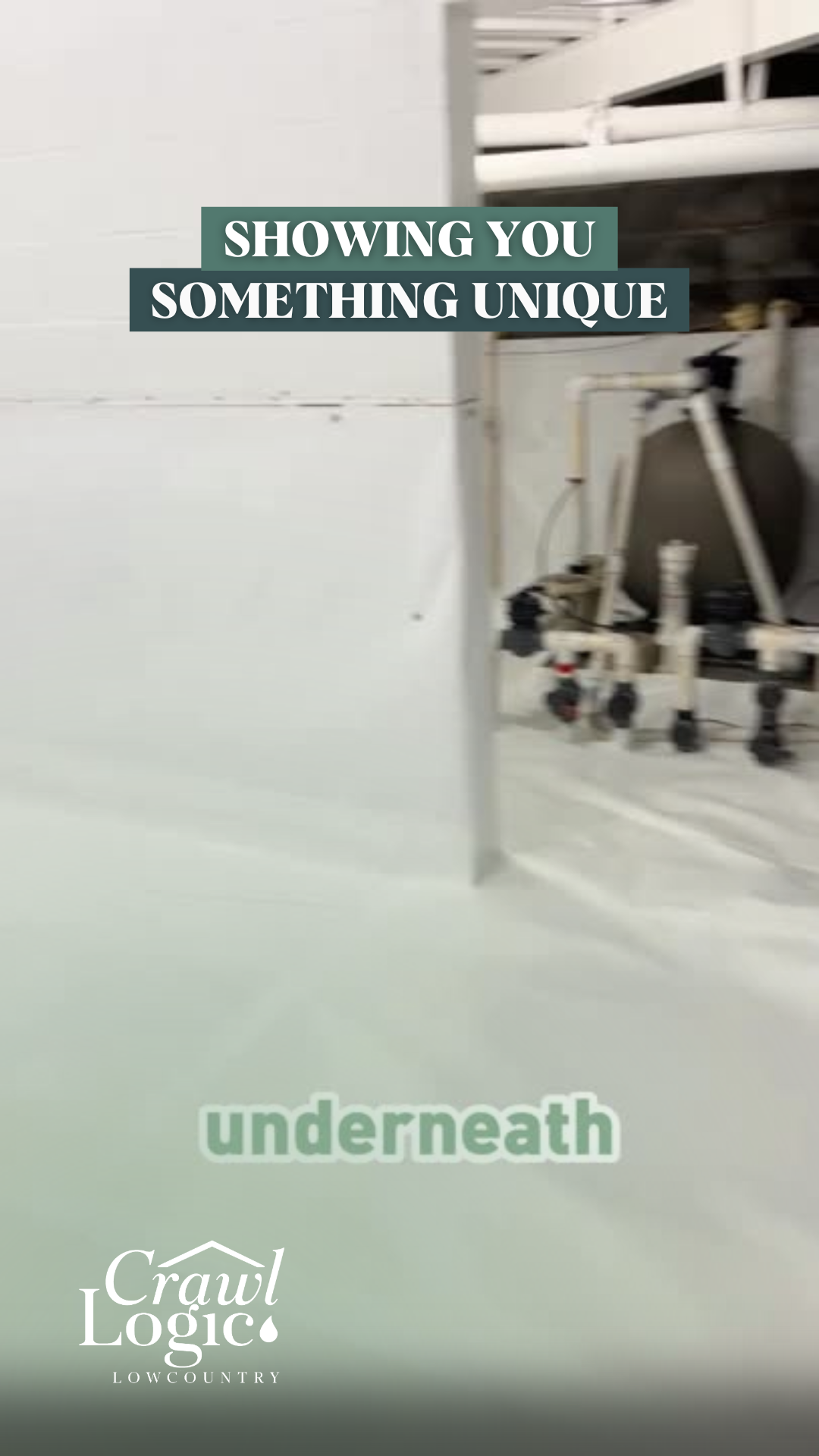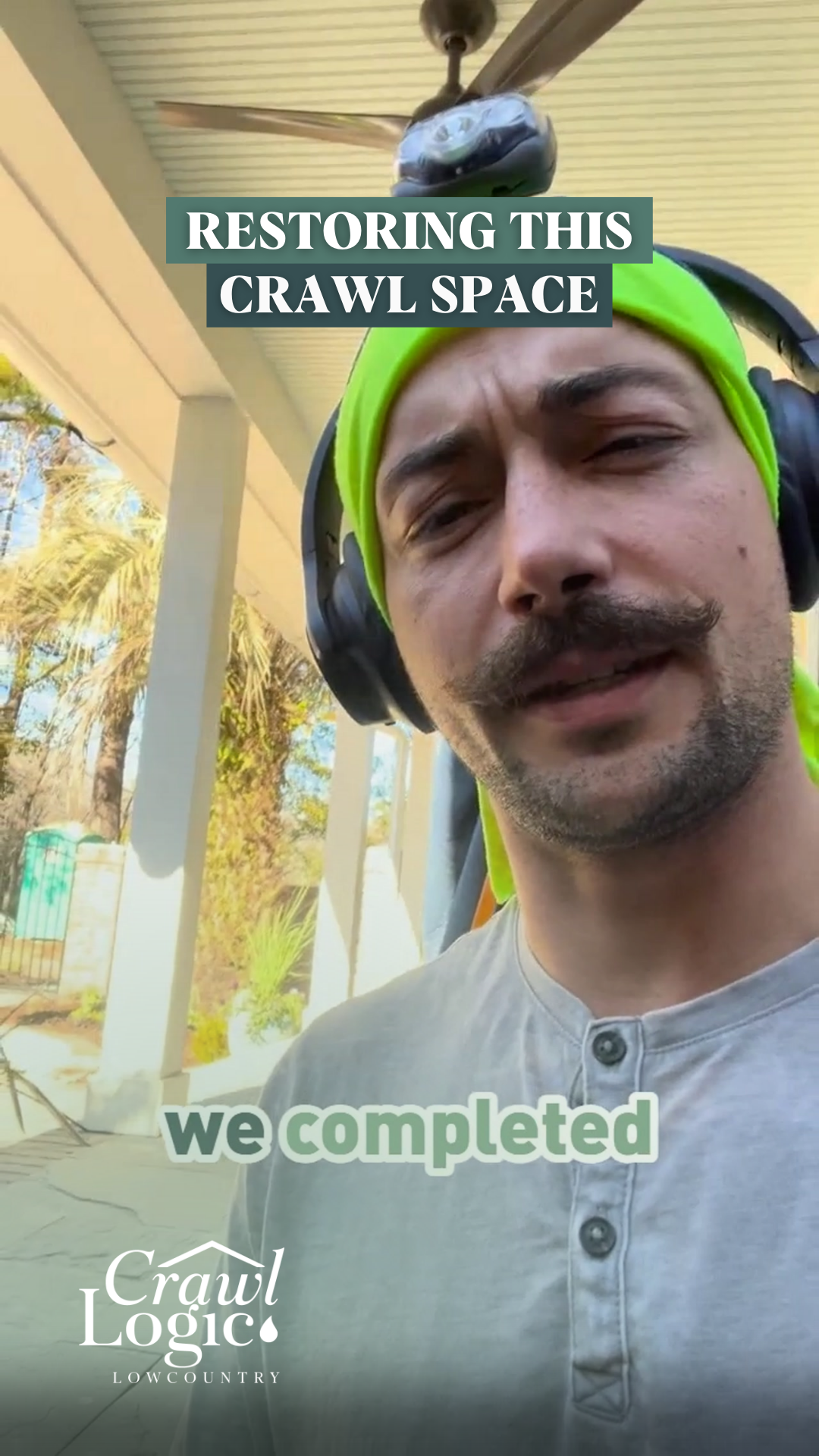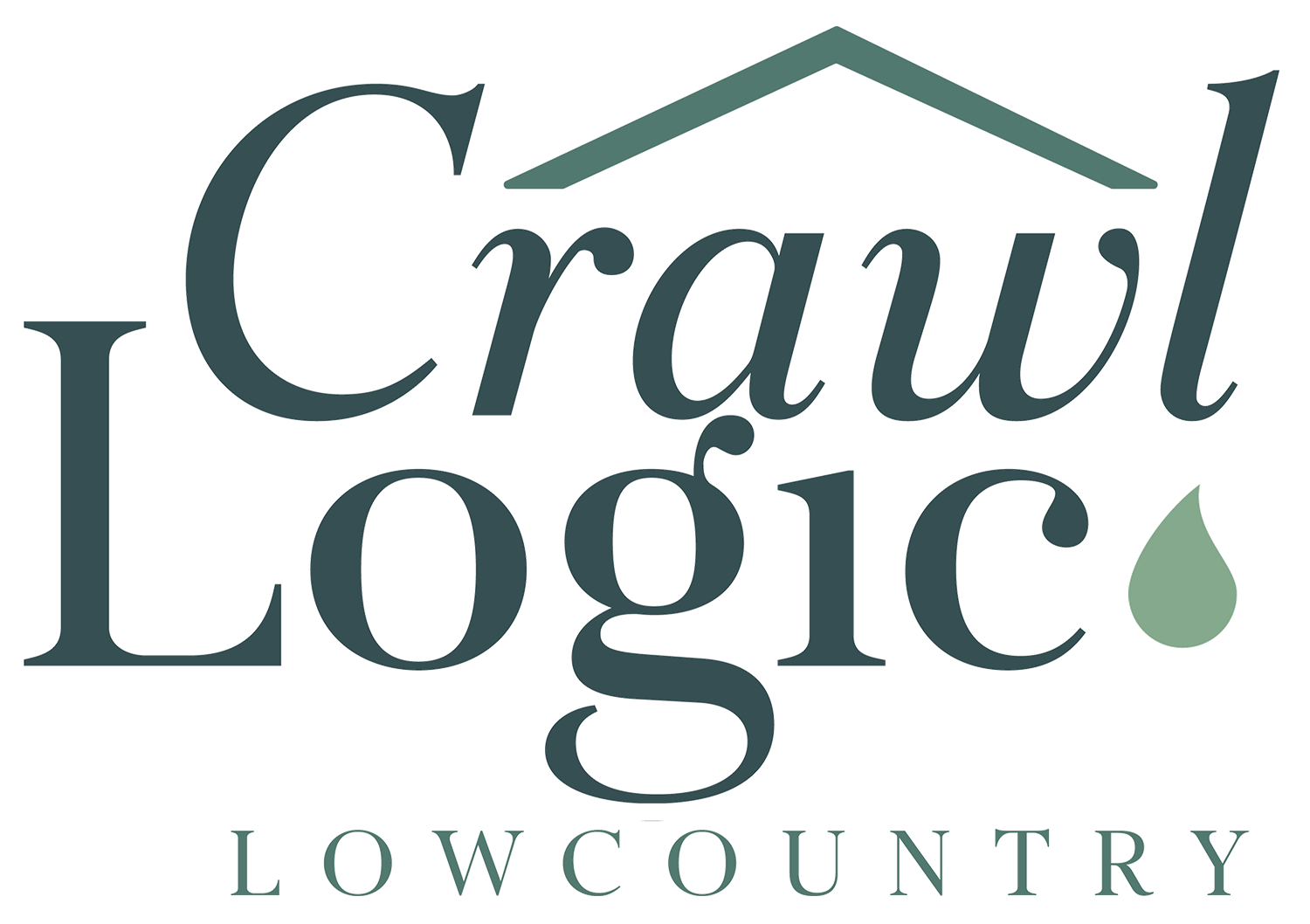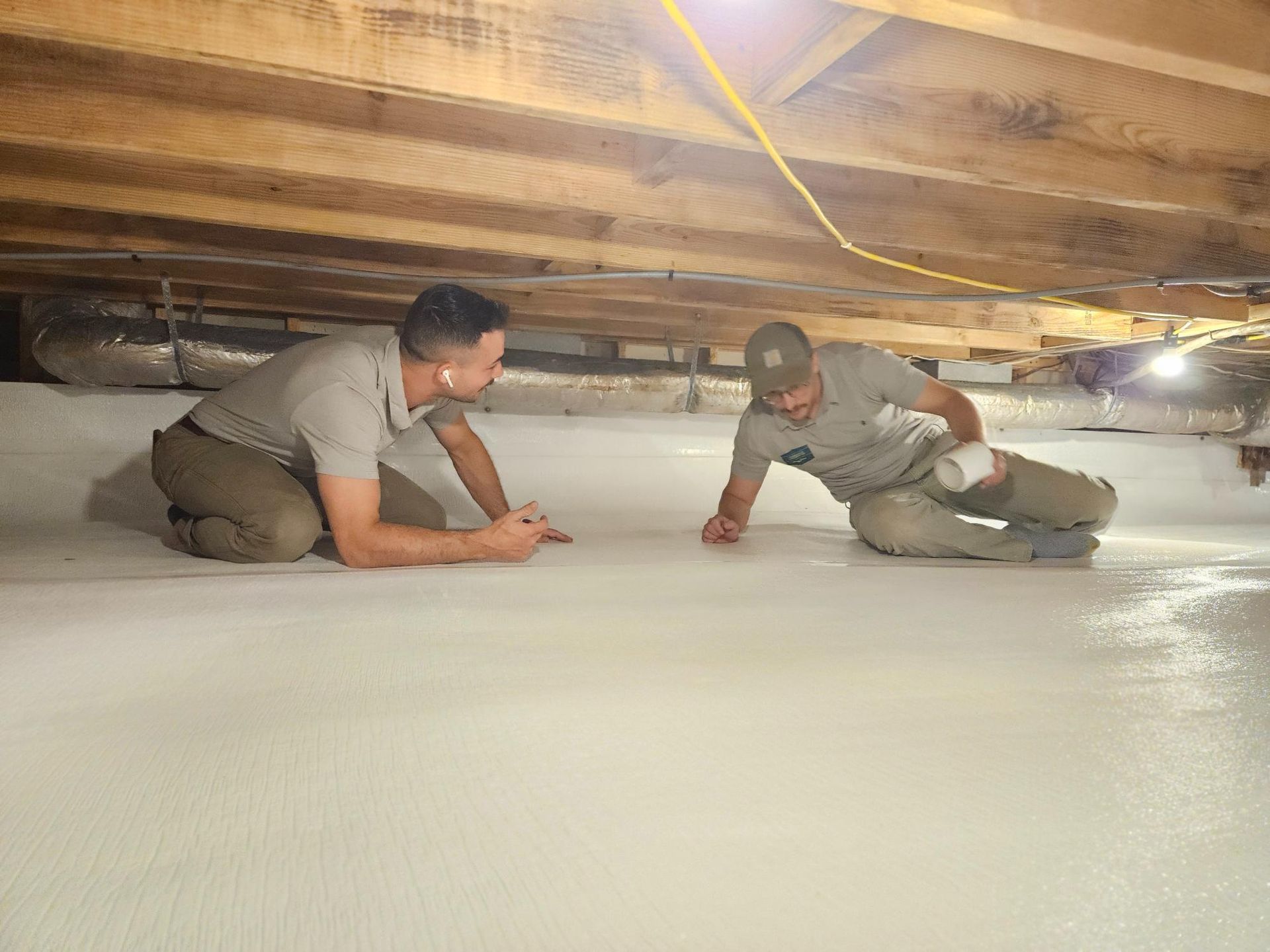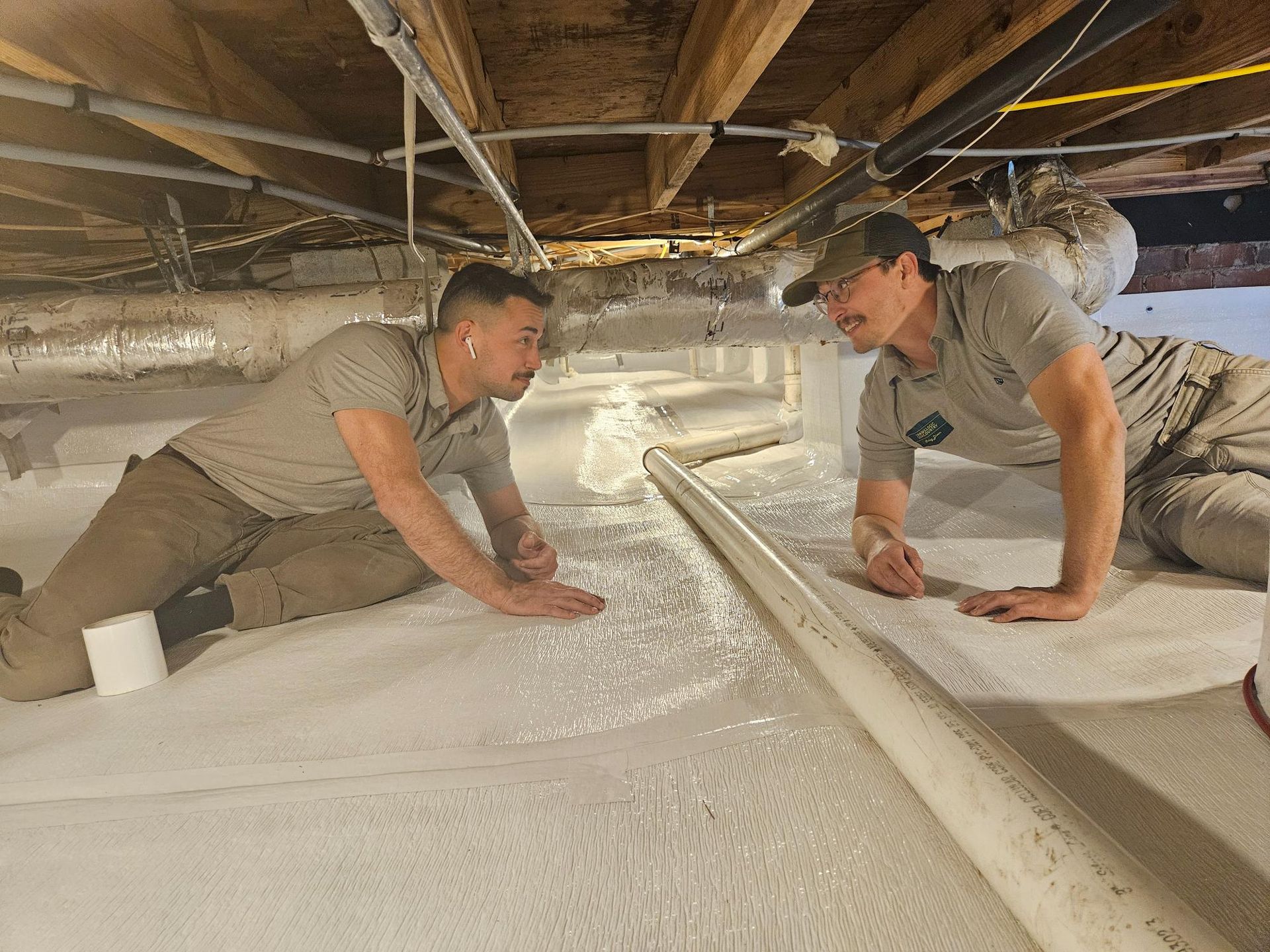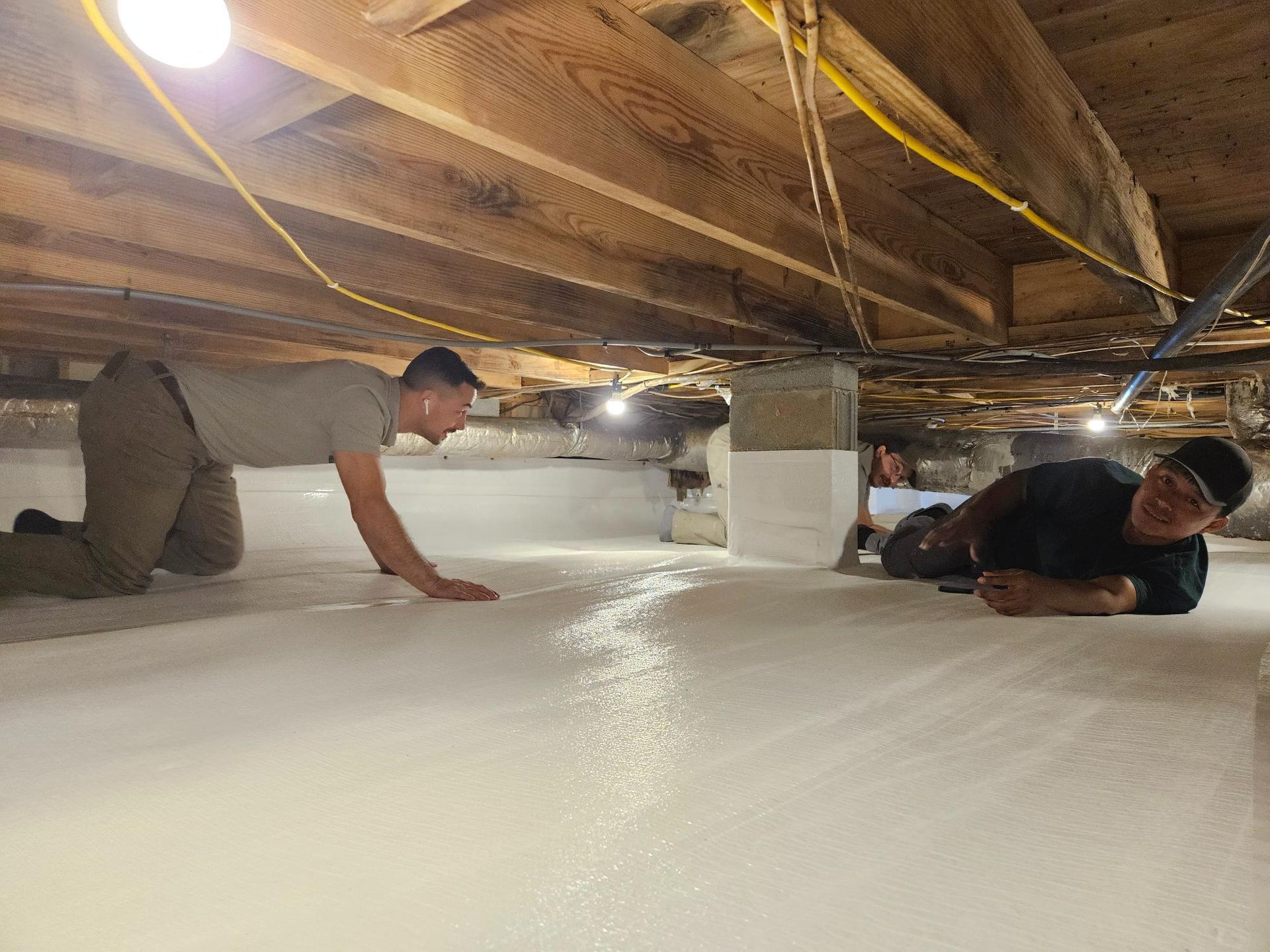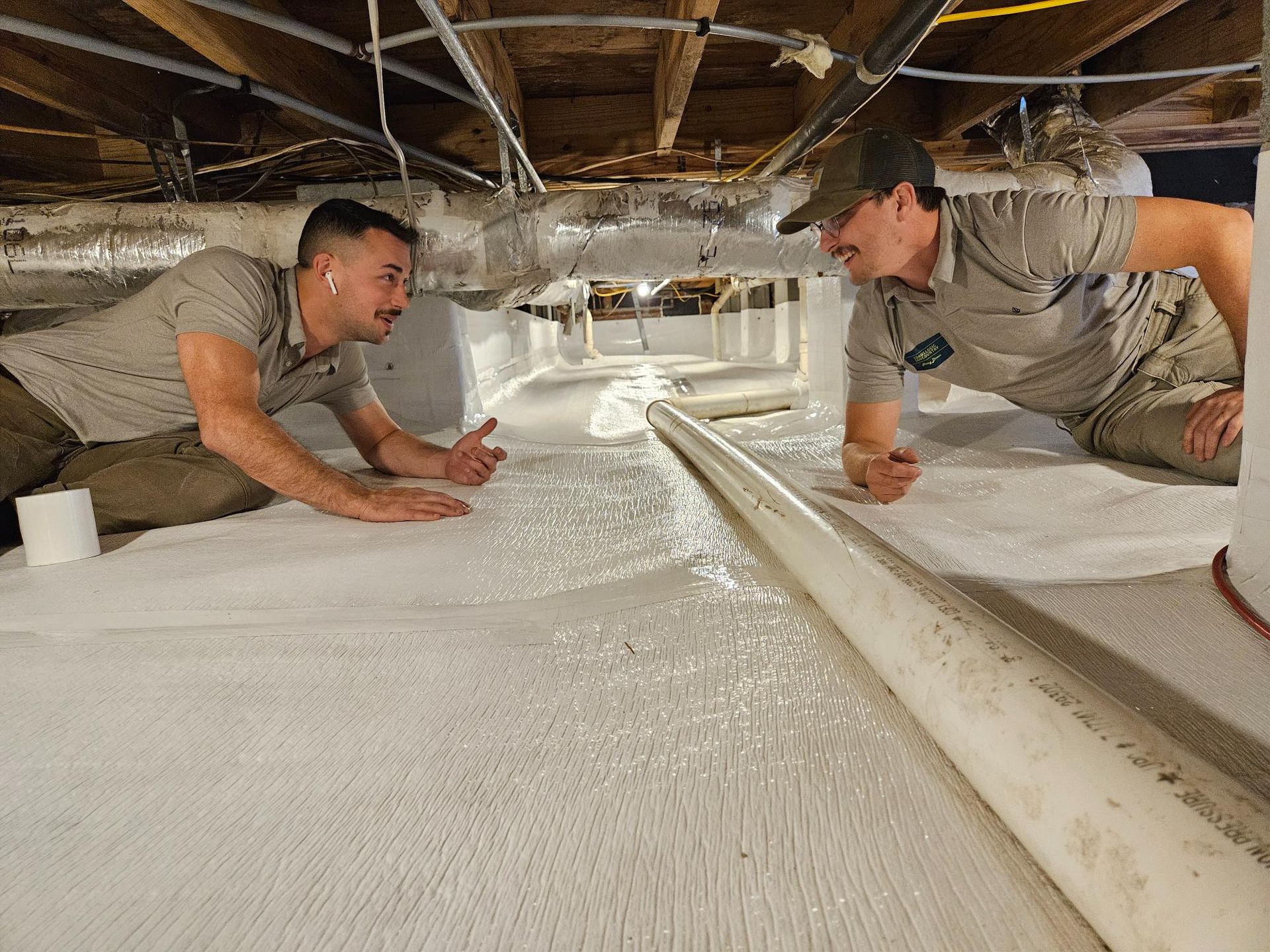Charleston Contractor Warns: Why Spray Foam Insulation Could Be Destroying Your Home
Crawl Logic Lowcountry
The Popular Choice Isn't Always the Right Choice
WHAT EVERY CHARLESTON HOMEOWNER NEEDS TO KNOW ABOUT SPRAY FOAM
Living in the Low Country, you've probably heard plenty about spray foam insulation.
It's the trendy choice right now - seems like every contractor is pushing it as the solution to all your insulation needs.
And look, I get it. In some cases, like with metal ductwork, it's actually pretty good at what it does.
But here's the thing: just because something's popular doesn't mean it's right for every situation.
After years of crawling under Charleston homes and dealing with the aftermath of spray foam gone wrong, I've got to speak up.
What I'm seeing is honestly concerning, especially when it comes to wood surfaces like subfloors and attics.
Welcome to Crawl Logic Lowcountry!
The Appeal vs. Reality
On paper, closed cell spray foam sounds perfect. It creates a tight seal, has great R-value, and contractors love selling it because, well, it's expensive. But here's what those sales pitches don't tell you: when it comes to wood surfaces, that airtight seal can actually work against you.
Think about our climate here in Charleston. We deal with high humidity, occasional roof leaks, plumbing issues - it's just part of life here. With traditional insulation, you'll usually spot these problems early. Maybe you notice a water stain on the ceiling or feel some soft spots in your floor. But spray foam? It's like putting a blindfold on your house. By the time you notice something's wrong, you're way past the point of an easy fix.
Real-Life Horror Stories
Let me tell you about something that happened just recently. A homeowner had his ceiling collapse right in the middle of his kid's birthday party. Think about that - one minute you're celebrating, the next there's a crash from upstairs. Know what caused it? A small roof leak that nobody could see because spray foam had trapped the water, letting it slowly rot everything out until - boom - the whole thing gave way.
And that's not a one-off case. My very first crawl space job was trying to save a lady's floors after her refrigerator leaked. The spray foam had created this pocket between itself and the subfloor where water just sat there, quietly destroying everything. By the time anyone noticed, she was looking at replacing all her floors.
The Technical Problem
Here's what's actually happening: When water gets behind closed cell spray foam - whether from a roof leak, plumbing issue, or even just condensation - it gets trapped. The foam creates this waterproof barrier that seems great until you realize it's working both ways. It's not just keeping water out; it's keeping it in.
In our Charleston climate, this is especially problematic. We've got humidity, we've got rain, we've got all sorts of ways water can find its way into places it shouldn't be. With traditional insulation, that water has a chance to either dry out or at least show itself before major damage occurs. But with spray foam? You're basically creating a swimming pool for your wood structures, and you won't know about it until it's too late.
Smart Alternatives
So what should you use instead? For subfloors and attics, traditional fiberglass insulation isn't perfect, but at least it lets you spot problems early. Some of the newer batt insulation products are actually pretty impressive, and they won't hide developing issues from you.
For ductwork and other metal surfaces? Sure, go ahead with the spray foam. Metal doesn't rot, so you're not risking the same kind of hidden damage. But anywhere there's wood involved, you're better off sticking with materials that let your house "talk" to you when something's wrong.
Protecting Your Home
Look, I'm not saying this to scare anyone - I'm saying it because I've seen too many Charleston homeowners learn this lesson the expensive way. If you already have spray foam installed, keep a close eye out for any signs of trouble. Watch for:
- Musty smells you can't explain
- Floors that feel different when you walk on them
- Any changes in your ceiling texture
- Unexplained humidity issues
And if you're thinking about getting spray foam? Ask your contractor some hard questions. Make them explain exactly how they'll handle potential water issues. Better yet, get a second opinion from someone who isn't trying to sell you spray foam in the first place.
The Bottom Line
Here's the thing about being a contractor in the Low Country: sometimes the hardest part of my job is telling people what they don't want to hear. Would it be easier to just go along with the spray foam trend? Sure. Would it be right? Not in my book.
Your home is probably the biggest investment you'll ever make. It deserves better than trendy solutions that could be hiding serious problems. Whether you're building new, renovating, or just trying to make your home more efficient, take the time to understand what you're putting in your house.
Got questions about your insulation options? Or worried about existing spray foam in your home? Give us a call. We'll give you the straight talk about what we're seeing in Charleston homes and help you make the right choice for your situation.
